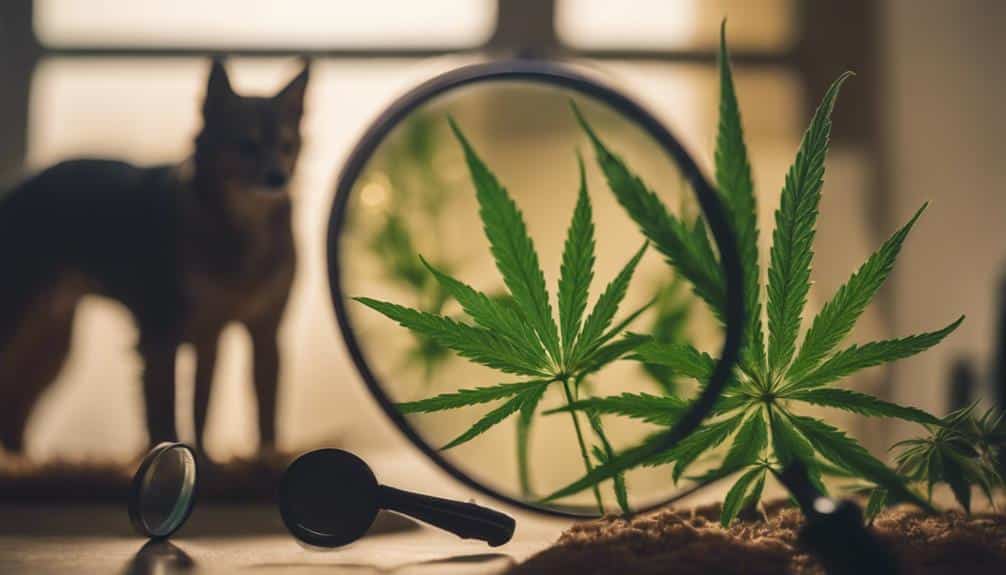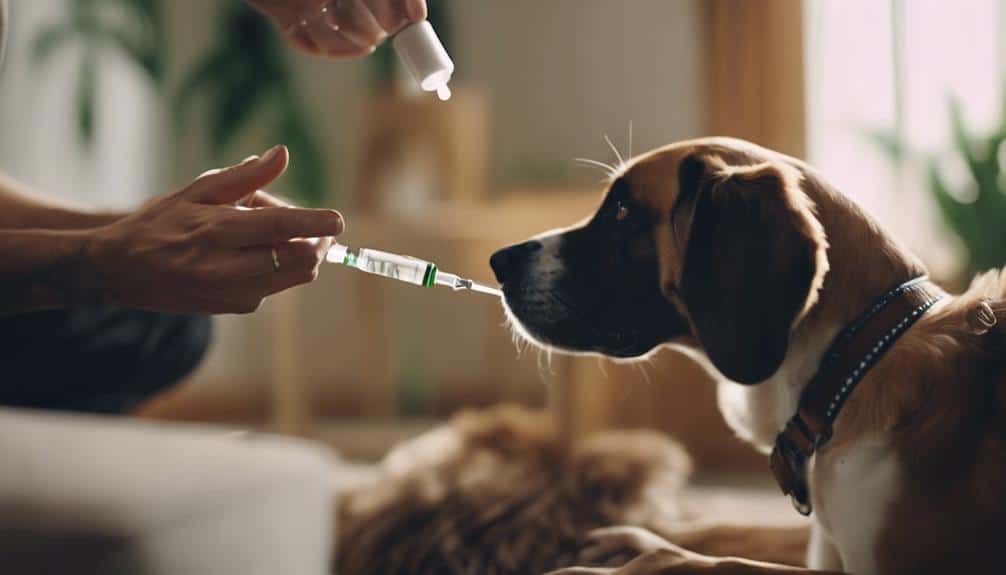Imagine you’re in the kitchen and accidentally knock over your favorite vase. It shatters into countless tiny pieces. Just like the vase, your pet’s health can sometimes feel fragile and complex, difficult to maintain in perfect condition.
Now, imagine a solution that could potentially help manage your pet’s health—no super glue required: CBD for pets. But before you get ahead of yourself, it’s important to understand that there’s more to this story. What exactly is CBD? How does it affect your pet? Is it safe? Let’s explore these questions.
Understanding CBD and Its Origin

Before diving into how CBD can benefit your pets, it’s crucial to understand what CBD is and where it originates from. CBD, short for Cannabidiol, is a naturally occurring compound found in the Cannabis Sativa plant—specifically in the hemp variety. Unlike THC (another well-known cannabinoid), CBD doesn’t produce a ‘high’ or psychoactive effects.
The Cannabinoid Spectrum refers to the range of cannabinoids found in the hemp plant. With over 100 cannabinoids each having its own potential benefits and effects—including THC, CBG, CBN among others—it’s important to note that THC levels in CBD products for pets are significantly low ensuring they’re non-psychoactive.
Understanding how CBD is extracted is equally important as extraction methods can impact both purity and quality of the final product. Common extraction methods include CO2 extraction, ethanol extraction, and oil infusion. CO2 extraction is often considered the gold standard due to its ability to preserve the integrity of cannabinoids and produce a pure, high-quality extract.
When it comes to your pets’ needs, it’s crucial to choose CBD products that have been extracted through reliable methods and contain a broad or full spectrum of cannabinoids.
Potential Health Benefits of CBD for Pets
Having understood the origin and extraction methods of CBD, let’s now explore the potential health benefits it can offer your pets. Research suggests that CBD holds numerous therapeutic applications for pets—similar to its effects on humans.
One of the most common uses of CBD is pain management in pets—especially those suffering from chronic conditions like arthritis. It’s believed that CBD interacts with receptors in the brain and immune system to reduce inflammation and alleviate pain.
Another significant benefit is its potential ability to control seizures, tremors, tics, and spasms. Some studies have shown that CBD can reduce both frequency and severity of these symptoms providing relief for pets with epilepsy or other neurological disorders.
CBD also has calming effects which can help alleviate stress and anxiety in pets—especially those with noise phobias or separation anxiety.
Determining the right dosage is crucial for maximizing these benefits. It’s typically recommended to start with a low dose gradually increasing until you observe desired effects. However, always consult with a veterinarian before starting any new treatment for your pet.
How to Administer CBD to Your Pet

When it comes to administering CBD to your pet, you’ll want to consider a few crucial factors such as the form of CBD, the size of your pet, and their specific health needs. The first step involves determining the dosage. It’s essential to note that there’s no one-size-fits-all dosage as every pet is unique. Many vets recommend starting with a lower dose and gradually increasing it while monitoring your pet’s reactions.
Now let’s talk about application techniques. CBD for pets comes in various forms including oils, capsules, treats, and topical solutions. Oils can be added to your pet’s food or water or placed directly into their mouth. Capsules can be hidden in a treat or opened and mixed with food. Treats are often the easiest to administer while topical solutions can be applied directly on the skin for localized issues.
Remember to be patient and consistent as effects may not be immediate but with time you should start seeing improvements. Lastly ensure you’re using high-quality CBD products—low-quality products may contain harmful additives or insufficient CBD which could affect results.
In the next section we’ll discuss possible side effects and precautions when using CBD for pets.
Possible Side Effects and Precautions
Just like any other medication, CBD can cause some side effects in pets so it’s crucial to know what to watch out for and take necessary precautions. The most common side effects are relatively minor such as drowsiness or mild gastrointestinal upset; however more severe reactions can occur if your pet is allergic to CBD or if an excessively high dosage is administered.
Beware of dosage dangers—like humans pets can experience side effects from too much CBD. Overdosing can cause dizziness, vomiting, and in severe cases loss of consciousness. Always start with a low dose and observe your pet’s reaction before gradually increasing.
Allergic reactions to CBD are rare but possible. Signs of an allergic reaction include itching, puffiness, redness, or hives. If you notice any of these symptoms or if your pet appears distressed after ingesting CBD it’s important to discontinue use and consult with your vet immediately.
Choosing the Right CBD Product for Your Pet

Navigating the world of CBD products for pets can seem overwhelming but understanding your pet’s specific needs and doing thorough research can help you make an informed decision. Start by conducting a product quality evaluation—look for products that have been third-party tested as these results ensure both potency and purity of the CBD.
You should also consider the type of CBD—full-spectrum, broad-spectrum or CBD isolate. Full-spectrum CBD contains all compounds found in the hemp plant including small amounts of THC; broad-spectrum CBD contains most compounds but no THC while CBD isolate only contains pure CBD.
Next look for pet-specific formulas which are designed with your pet’s size and diet in mind—for instance small dogs might need a lower potency formula than larger dogs. Some pet-specific formulas include flavorings like bacon or peanut butter to make them more appealing to your pet.
Lastly consider the method of delivery—CBD for pets comes in various forms including oils, treats, and capsules. Each has its benefits and drawbacks so you’ll need to consider what’s best for your pet’s lifestyle and preferences. With thorough research you can find a CBD product that fits your pet’s needs.
Conclusion
Navigating the world of CBD for your beloved pet may feel like a challenging trek through a dense forest but equipped with the right knowledge it’s a journey worth taking. Remember the proper CBD product can serve as a powerful tool in your pet’s health toolkit—be aware of potential side effects and always consult with your vet. Your pet’s wellbeing is the ultimate prize and with cautious steps you can steer them towards a healthier happier life.
We invite you to visit us at Cannabis Docs of Delaware to learn more. Our knowledgeable team is ready to guide you through the ins and outs of CBD for pets—we’re here to answer any questions ensuring that you’re fully comfortable with your decisions. If you’d rather chat on the phone don’t hesitate to give us a call—we’re always ready to help. Remember, your pet’s health is our priority—with the right knowledge we can work together towards contributing to their happier healthier life.
The post CBD for Pets: What Pet Owners Need to Know appeared first on Delaware Cannabis Docs.
source https://delawarecannabisdocs.com/cbd-for-pets-what-pet-owners-need-to-know/

No comments:
Post a Comment